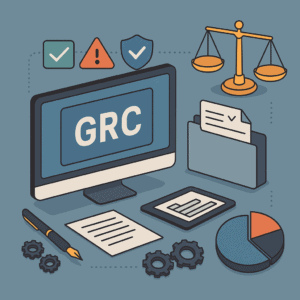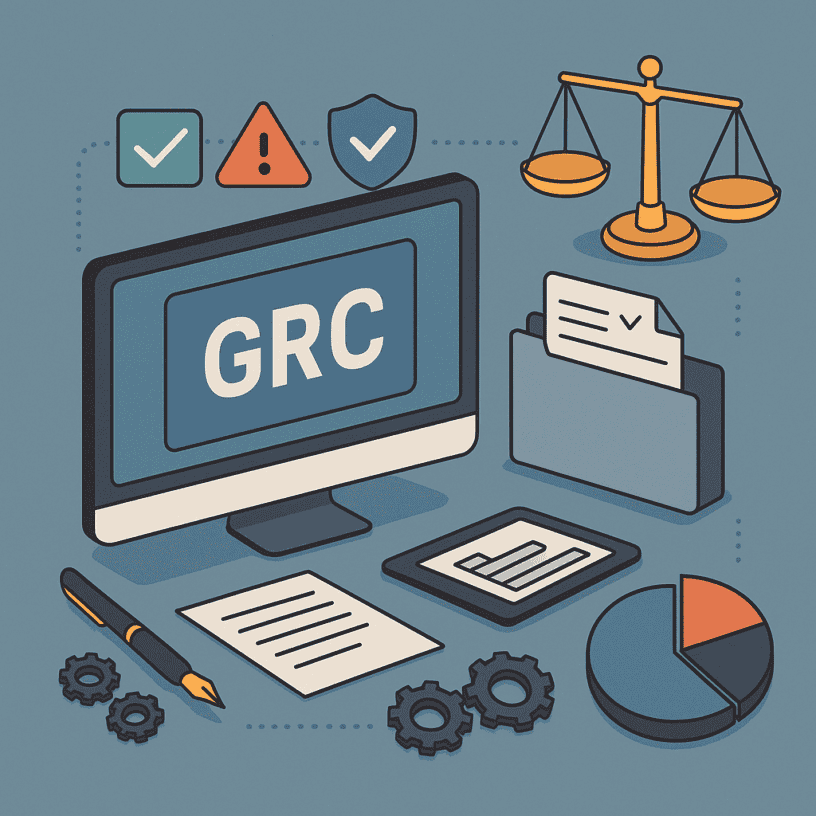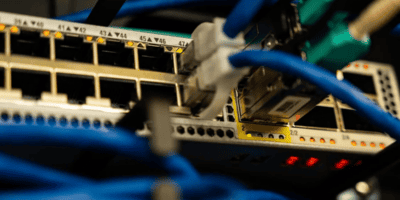When someone thinks about a big company—like the kind that makes phones, runs airlines, or builds cars—they probably imagine lots of people in suits, working in tall buildings, talking about money. But what most people don’t realize is that behind all those meetings and fancy offices, there are tools doing super important work to keep things from falling apart.

These tools aren’t robots or machines you can see. They’re programs and systems running on computers, working in the background every single day. Without them, everything could get really messy, really fast.
The Reason Rules Matter in Business
Every company has to follow rules. Some rules are about safety, some are about money, and others are just there to make sure things stay fair. These aren’t rules made up by random bosses—they’re usually made by governments or important industry groups. For example, a food company has to follow health laws. A bank has to follow privacy rules. And a tech company might need to follow data protection laws.
If a company breaks these rules, even by accident, it can get into serious trouble. That could mean huge fines, people losing their jobs, or the business even being shut down. So companies work really hard to make sure they’re doing everything right.
But keeping up with all those rules? It’s not easy. That’s where certain tools come in to help.
Meet GRC Software: The Rule-Keeping Assistant
One of the most helpful tools out there is something called GRC software. It sounds complicated, but GRC just stands for Governance, Risk, and Compliance. Basically, it helps companies make smart choices (governance), avoid disasters (risk), and follow the rules (compliance).
Lots of big businesses use this kind of software because it takes a huge load off their shoulders. Instead of trying to track every rule with a million spreadsheets or emails, they can use one system that organizes everything in one place. Choosing the best GRC software makes a big difference—it saves time, improves accuracy, and helps companies spot risks before they become problems.
How It Actually Works Day to Day
Think of it like this: a giant puzzle with thousands of pieces. Each piece is a rule or a process that has to be followed. GRC software is what helps put all the pieces in the right place and checks to make sure none are missing.
Every time someone in the company does something—like signs a contract, changes a policy, or reports a safety concern—it can be logged in the system. The software keeps track of what’s going on and gives alerts if something seems off or needs to be reviewed.
For example, if a company has to do safety checks every month and someone forgets, the software will remind them. If a new law is passed that affects how the company works, the system can update everyone and show what changes need to be made.
It’s kind of like having a digital manager who never sleeps.
Why It Matters More Than People Think
Without these tools, big companies would have a much harder time staying on top of everything. People would have to remember hundreds of tiny details and hope they don’t forget anything. That’s a lot to ask, especially when things are constantly changing.
GRC software doesn’t just make things easier—it makes them safer and more reliable. It helps people work faster, fix mistakes early, and avoid doing anything risky that could lead to trouble later.
And it’s not just for giant companies, either. Medium-sized businesses and even some small ones are starting to use these tools because the benefits are huge. When things are more organized, people have more time to focus on the work that actually matters.
Other Tools That Keep Businesses on Track
GRC software is a big part of the picture, but it’s not the only tool working behind the scenes. Businesses also use systems for things like:
- Project tracking – to make sure teams stay on schedule
- Customer support – so people get help fast and nothing falls through the cracks
- Inventory systems – to keep track of products or materials
- Payroll tools – to pay everyone correctly and on time
- Cybersecurity software – to keep hackers out and data safe
All of these programs talk to each other and share information. That way, no one has to guess what’s going on—they can just check the system. And if something weird happens, like a sudden change in spending or a missed deadline, the software usually spots it before it becomes a big deal.
Why Most People Never Hear About This Stuff
Most of the time, regular people don’t even know these tools exist. They just see the final product—an app that works, a product that’s safe, or a company that seems to “just work.”
But behind that smooth surface are a bunch of systems making sure everything stays on track. Just because they’re invisible doesn’t mean they’re not important. In fact, that invisibility is kind of the point. These tools do their job so well that nobody even notices them.
That’s how you know they’re working.
What Happens When Companies Don’t Use Them
When businesses don’t use these kinds of tools—or don’t use them correctly—it usually doesn’t take long for problems to show up.
Maybe they miss a deadline, forget a rule, or don’t notice a risky situation until it’s too late. That can lead to bad press, angry customers, or even legal problems. Some companies have lost millions just because of one missed step.
GRC software and other business tools act like safety nets. They don’t make companies perfect, but they help catch mistakes before they become disasters.
Why These Tools Deserve More Credit
Running a business is more than selling products or having a cool logo. Behind every successful company is a mountain of rules, deadlines, and responsibilities. The reason it all works smoothly is because of smart tools doing the heavy lifting where most people can’t see.
Things like GRC software, inventory trackers, and security systems might sound boring at first. But once you realize how much they do—and how they help people work better and safer—it becomes clear they’re actually pretty awesome.
These tools are what keep big businesses from turning into big messes.
And honestly? They deserve way more credit than they get.








